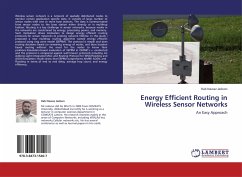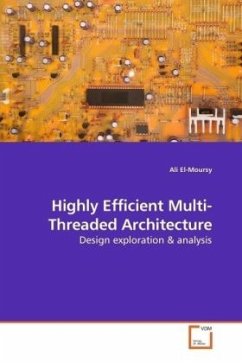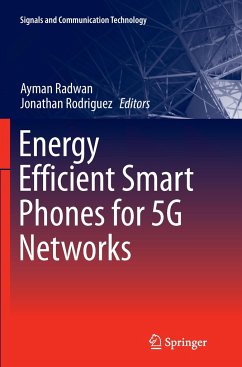
An Energy-efficient Architecture for Wireless Sensor Networks
Theoretical and Experimental Research
Versandkostenfrei!
Versandfertig in 6-10 Tagen
39,99 €
inkl. MwSt.

PAYBACK Punkte
20 °P sammeln!
Networked embedded systems provide a versatilecomputing platform for supporting surveillanceapplications. These networks are typically leftunattended in harsh environments, making itimpossible to re-charge their batteries. Motivated bythe large scale of sensor deployment, the limitedcapabilities of sensors, and the hostility of theencompassing environment, we design distributedprotocols for topology management and networksynchronization. We address heavily-loaded networks,in which sensors either periodically send theirreports to an observer, or respond to an observer'squery.We construct a hier...
Networked embedded systems provide a versatile
computing platform for supporting surveillance
applications. These networks are typically left
unattended in harsh environments, making it
impossible to re-charge their batteries. Motivated by
the large scale of sensor deployment, the limited
capabilities of sensors, and the hostility of the
encompassing environment, we design distributed
protocols for topology management and network
synchronization. We address heavily-loaded networks,
in which sensors either periodically send their
reports to an observer, or respond to an observer's
query.
We construct a hierarchical (clustered) network in
which a subset of nodes are elected as super-nodes
(cluster heads). These heads constitute the
routing infrastructure and aggregate data from their
cluster members. For load balancing, the super-node
functionality is rotated among the nodes. For nodes
deployed in harsh environments, we propose a
methodology for supporting robust connectivity and
multi-path routing. We also consider applications
and protocols that require node synchronization, and
design a framework for time synchronization in
multi-hop hierarchical networks.
computing platform for supporting surveillance
applications. These networks are typically left
unattended in harsh environments, making it
impossible to re-charge their batteries. Motivated by
the large scale of sensor deployment, the limited
capabilities of sensors, and the hostility of the
encompassing environment, we design distributed
protocols for topology management and network
synchronization. We address heavily-loaded networks,
in which sensors either periodically send their
reports to an observer, or respond to an observer's
query.
We construct a hierarchical (clustered) network in
which a subset of nodes are elected as super-nodes
(cluster heads). These heads constitute the
routing infrastructure and aggregate data from their
cluster members. For load balancing, the super-node
functionality is rotated among the nodes. For nodes
deployed in harsh environments, we propose a
methodology for supporting robust connectivity and
multi-path routing. We also consider applications
and protocols that require node synchronization, and
design a framework for time synchronization in
multi-hop hierarchical networks.












